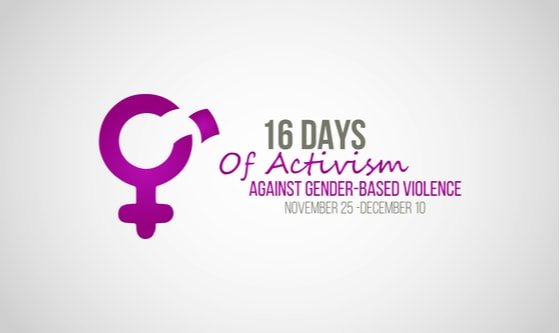
The power of 16 Days of Activism
Every year we demand a change and demand an end to violence. But the violence persists.
Janet* was only 9 years old when her stepfather raped her. It was a regular occurrence several times a week, every week for years. She didn’t know how to tell her mother. It was only when she turned 13 years old that she mustered the courage to come forward.
‘My mother started to [verbally] abuse me. She didn’t believe me.’ Janet recalls. Her mother did not reproach her stepfather or threaten to leave. There was no intervention. The abuse continued. A year later as Janet sat for her Primary Certificate of Education, she was expecting her stepfather’s child. Her mother was privy to this and discussed the matter with her stepfather.
Immediately after Janet completed her examination she was ferried to a clinic and abortion was procured. The rape continued until she finally found reprieve. Janet surprisingly excelled in her exams and was called to the Pangani Girls High School, 300 km away from her home in Kericho. She was ecstatic.
Janet journaled her pain away to cope with the constant anxiety and stress at the thought of every closing day or midterm when students went home. Her close friends noticed her constant dread and apprehension every holiday for two years. One day, in 2016, while Janet was journaling in tears one friend demanded to know what was wrong with her. After a lot of prodding, she finally opened up to her. Her friend quickly referred her to a list of teachers she could confide in to help.
Through the intervention of her teachers and the high school principal in partnership with the police, her stepfather was charged and locked behind bars. Through the high school’s alumni association, Janet received a mentor who encouraged and counselled her, giving her new-found hope. She was further housed in a children’s home just outside of Nairobi where she was spared from the verbal abuse and taunting from her entire family.
Yet Janet, the victim of years of sexual abuse was now an outcast. She was accused of being a sell-out and home wrecker. She was told she lied about what her stepfather, even though the evidence was readily available. Janet was all alone.
Upon graduating from high school in 2018, ready to take on the world, Janet was hopeful. As she sought options for college, her mother refused to offer her the support she needed. Her grandmother insisted that Janet move in with her in her rural home in Kericho.
A month later, Janet was sent back home to stay with her mother and siblings. On 1st February 2019, Janet’s stepfather was released and is now home with her. Janet is desperately finding ways to eke a living to stand on her own two feet away from her abuser.
Her support system is fickle. She relies on a few cousins in Nairobi, a few years older than her, for casual work and sustains hope from an occasional conversation with an alumnus from her high school.
Every year from 25th November, the International Day for the Elimination of Violence against Women to 10th December, Human Rights Day, the world is awoken to the need to prevent violence of this kind, and many others, against women and girls. Every year we demand a change and demand an end to violence. But the violence persists.
The future of young girls and women like Janet are just too many to count. Kenya has remarkable legislation: the Sexual Offences Act 2006, the Child Act 2001, the Prevention Against Violence Act 2015 and the Prohibition of Female Genital Mutilation Act 2011. But where is the justice for girls and young women like Janet?
It is only through awareness, through talking about these incidents and fighting for that justice, that justice can be served, and be seen to be served. The importance of these days, and the importance of highlighting them, enable women and girls to be emboldened to protect their own and themselves.
*Name has been changed to protect her identity and further persecution.
